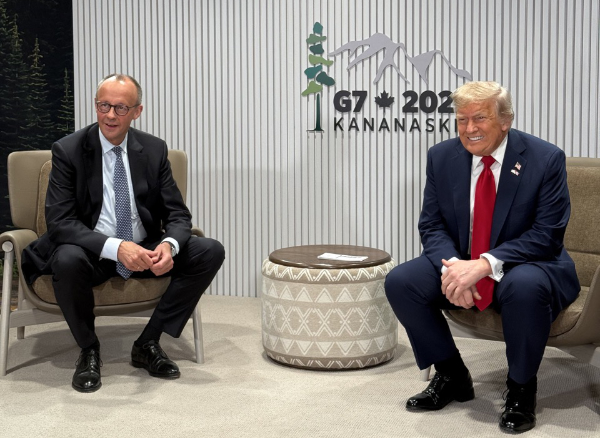Speaking on Sunday after the latest round of talks on Washington’s draft settlement, Merz said Germany does not support restoring the G8 format. Any revival of the club, he stressed, requires agreement from all current G7 members—and that consensus is nowhere in sight.
The US plan, still unofficial but already shaping debate across capitals, envisions gradually reintegrating Russia into the global economy and forums like the G8 if it observes a long-term ceasefire. The blueprint has already drawn criticism in Kyiv and across Europe. Critics warn it rewards aggression by giving Russia, among other privileges, more territorial gains than it has actually achieved.
Europe’s G8 red line
Merz’s line makes clear that any peace framework that smuggles Russia back into elite formats without real accountability is likely to hit a wall in Europe. TVP World reported him saying, “At the moment, I do not see any willingness among the six current members of the G7, who are not America, to accept Russia back into this group.”
For Kyiv, that stance helps preserve one of the few remaining levers over Moscow: exclusion from the international political arena.
As negotiations over competing peace blueprints accelerate, the German chancellor has drawn a simple red line: for now, it is too early to talk about Russia’s return to the G8.
Prestige, power and impunity
Russia was ejected from what was then the G8 in 2014 after its seizure of Crimea. Letting it back in now—after the full-scale invasion, Bucha, Mariupol, and thousands of missile and drone strikes—would signal that mass violence eventually buys respectability and leverage.
Even talking about a G8 seat for Russia before its troops leave occupied Ukrainian territory would hand Putin a free propaganda victory.
Instead, European governments are doubling down on pressure tools such as the Russian oil price cap and new sanctions packages, trying to erode the Kremlin’s war chest while backing Ukraine’s defense.

